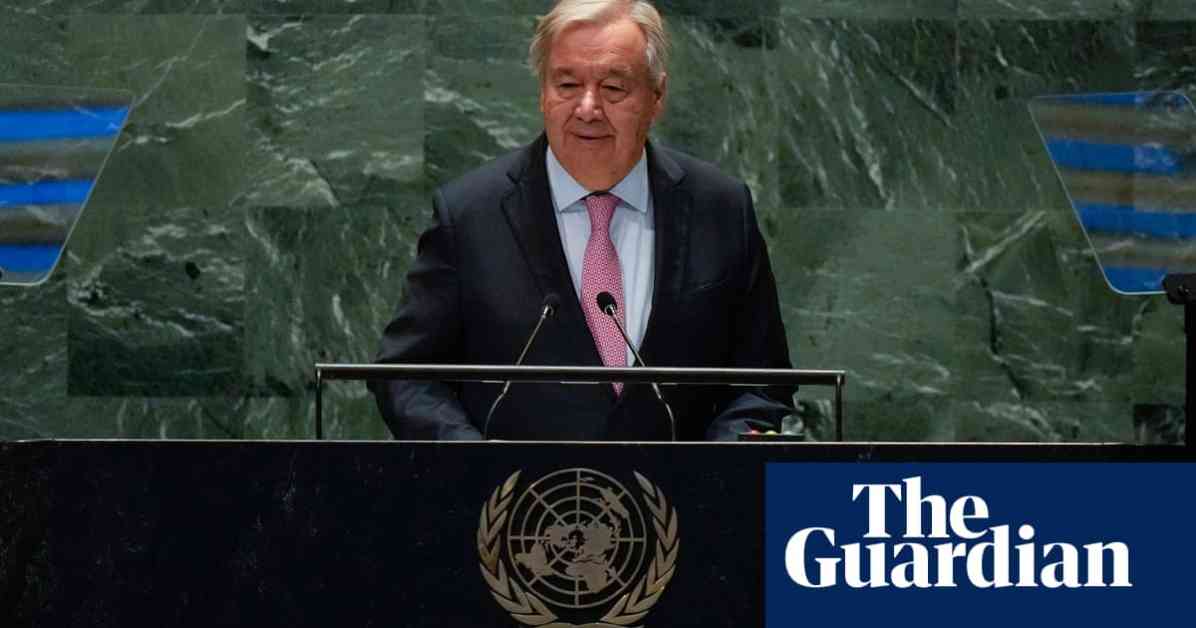Russia Faces International Isolation at UN Summit for Attempting to Undermine Pact
Russia found itself in a position of isolation at a recent UN summit in New York, after attempting to derail an ambitious pact aimed at revitalizing the United Nations. The move by Russia to defer adoption of the agreement, citing concerns that it favored western interests, was met with overwhelming rejection by the international community. With 143 votes against and only seven in favor, along with 15 abstentions, Russia’s attempt to undermine the pact was resoundingly dismissed.
A Diplomatic Misstep for Russia
The Russian delegation’s unexpected move to delay the adoption of the “pact for the future” sparked criticism and condemnation from various countries and organizations, including the African Union (AU) and Mexico. The attempt to assert that the issues addressed in the pact fell under domestic jurisdiction and should not be subject to UN intervention was met with strong opposition. Despite limited support from countries such as Belarus, Venezuela, Syria, and Iran, Russia’s efforts to defer the vote and introduce amendments were ultimately unsuccessful.
A Controversial Standoff
The controversy surrounding the pact highlighted the deep ideological divisions that have hindered multilateral cooperation within the UN. Russia’s objections to key provisions in the draft pact, including national jurisdiction and universal access to sexual and reproductive health rights, underscored the challenges facing international diplomacy. The rejection of Russia’s amendments signaled a clear message of unity and commitment to collective action on global issues.
UN Secretary-General António Guterres emphasized the importance of the pact in revitalizing multilateralism and addressing 21st-century challenges such as debt, climate change, and global crises. The document, spanning 26 pages and containing 56 recommendations, outlines a comprehensive framework for reforming and strengthening the UN’s role in global governance. Despite some reservations and criticisms, the pact represents a significant step towards reinvigorating international cooperation and addressing pressing global issues.
Graham Gordon of Christian Aid praised the pact for providing a roadmap for future action and highlighting the shortcomings of current multilateral efforts. The document’s emphasis on the rule of law, UN reform, and sustainable development reflects a shared commitment to building a more inclusive and effective international system. While some details may still need to be clarified and expanded upon, the pact sets a positive tone for future discussions and initiatives within the UN.
A Path Forward for Multilateral Cooperation
The summit for the future, initiated by Guterres more than two years ago, serves as a crucial platform for world leaders to reaffirm their commitment to cooperation and multilateralism. The pact’s recommendations cover a wide range of issues, from UN Security Council reform to climate action and nuclear disarmament. By outlining concrete steps and proposals for enhancing global governance, the pact offers a roadmap for addressing complex challenges and promoting sustainable development.
Despite Western opposition to certain provisions, such as UN involvement in financial institutions and stimulus packages for sustainable development goals, the pact represents a significant milestone in efforts to strengthen international cooperation. By emphasizing the importance of inclusive decision-making, transparency, and accountability, the pact lays the groundwork for a more effective and responsive UN system. As countries grapple with the ongoing impacts of the COVID-19 pandemic and other global crises, the need for collective action and solidarity has never been greater.
In conclusion, Russia’s isolation at the UN summit underscores the importance of unity and cooperation in addressing global challenges. The rejection of Russia’s attempts to undermine the pact for the future reflects a shared commitment to multilateralism and international cooperation. As world leaders continue to grapple with complex issues such as climate change, poverty, and conflict, the need for effective and inclusive global governance has never been more urgent. By working together and upholding the principles of the UN Charter, countries can build a more sustainable and equitable world for future generations.












